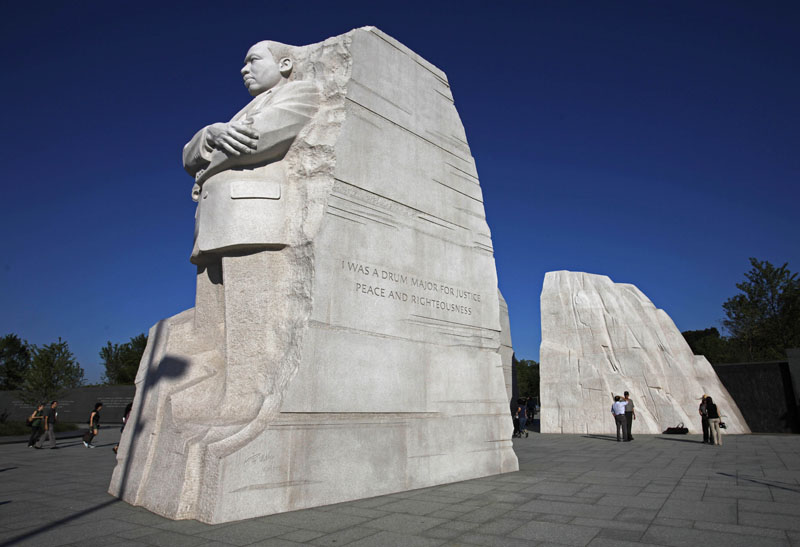Hurricane Irene forced postponement of the Washington, D.C., ceremony originally scheduled for today on the National Mall, but the nation nonetheless stands poised to dedicate a monument to, arguably, the greatest American of the 20th century: Martin Luther King Jr.
It is, as Lincoln said at another dedication, altogether fitting and proper that we should do this.
When heroes die, it is human nature to wrap their lives in metal, marble and granite. We do this that we might remember them, but there is in the remembering also a kind of reduction. The rough and jagged lines of a life lived at the forefront, lived in controversy, conflict and trial, become something smooth and safe enough for children. Thus were the cunning, melancholy, white supremacy, courage and genius of Lincoln flattened in popular memory to a single thing: He saved the Union and freed the slaves.
And thus does King’s 13-year struggle for the redemption of America shrink to a single brilliant speech and a fight to overturn laws that never should have been laws in the first place. The rough and jagged lines have become smooth. His life has become a bedtime story.
Which is why it feels appropriate, necessary, maybe a little seditious, to remember and remind that when he died, King was fighting for the right of workers to form a union and for the dignity of the poor.
That is not a bedtime story from way back when. It is a headline from right now. Unions, after all, are controversial again. Worse, poor people find themselves denigrated and demeaned in ways that shock conscience.
Former South Carolina Lt. Gov. Andre Bauer once likened them to stray animals one feeds at the back door. Fox News pundit John Stossel sees them as the enemy in a battle between “the makers and the takers.” Nebraska Attorney General Jon Bruning compares them to scavenging “raccoons.” Commentator Ann Coulter says welfare creates “irresponsible animals.”
There are people in this country — working people — who must routinely choose between rent and groceries, prescription drugs and electric lights. But we are encouraged by some on the political right to regard them with contempt and save our empathy for the fabulously wealthy.
You’ll have to go some to find a starker example of how morally blinkered this country has become.
Even if you put morality aside, there is still the question of enlightened self interest. If you are white, you may scorn black people and be reasonably certain you will never become one. If you are straight, you may scorn gay people and be reasonably certain you will never become one.
But any of us can become poor. Ann Coulter could become poor. How do you scorn what you might someday be?
Martin Luther King could have died wealthy from speaking fees alone. But he gave away that money and instead died poor, struggling on the side of the poor — garbage workers who came home with maggots in their hair, reeking of other people’s waste, having earned maybe $10, gross, for a 14-hour day.
King died asking America to show a little human compassion for people like those, people the Bible calls “the least of these.” The monument to him seems, in photographs, a handsome and imposing thing.
But one suspects that, given his druthers, he would prefer the compassion. One suspects he could consider that the greatest monument of all.
Send questions/comments to the editors.




Success. Please wait for the page to reload. If the page does not reload within 5 seconds, please refresh the page.
Enter your email and password to access comments.
Hi, to comment on stories you must . This profile is in addition to your subscription and website login.
Already have a commenting profile? .
Invalid username/password.
Please check your email to confirm and complete your registration.
Only subscribers are eligible to post comments. Please subscribe or login first for digital access. Here’s why.
Use the form below to reset your password. When you've submitted your account email, we will send an email with a reset code.